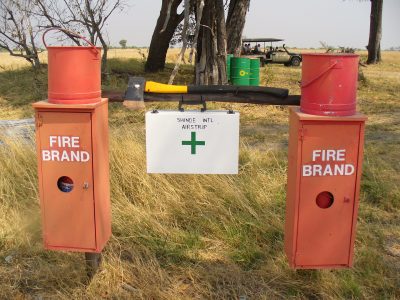Potential travellers are now thinking about the Australian winter in 2019 and many are thinking of safaris in Africa. Common destinations include Kruger National park in South Africa, and other fabulous destinations in Botswana, Zambia, & Kenya. They will have a wonderful time, but all should consult their Travel Medicine professional before travelling, ideally at least 6 weeks in advance.

Topics currently in the news include:
Rabies:
According to South Africa's National Institute for Communicable Diseases, 14 confirmed, dog-related, human rabies cases (a significant increase over average incidence) have been reported since January 2018 in Eastern Cape and KwaZulu-Natal provinces. These cases are linked to an ongoing outbreak of dog rabies in the 2 provinces. Travelers should seek medical care if bitten, scratched, or licked by a dog, another terrestrial mammal, or bat.

Rabies is most commonly from a dog bite.
And the BBC recently reported that a Briton has died after contracting rabies while on holiday in Morocco, health officials have said.
The World Health Organization advises that the disease occurs in more than 150 countries and causes tens of thousands of deaths every year, mainly in Asia and Africa. It says in up to 99% of cases, domestic dogs are responsible for the transmission of the virus to humans.
The UK government says north African countries such as Morocco, Algeria, and Tunisia are among 139 nations where there is a high risk of Rabies.
Rabies is a viral infection that affects the brain and central nervous system. It is passed-on through bites and scratches from an infected animal.
§ Initial symptoms can include anxiety, headaches and fever
§ As the disease progresses, there may be hallucinations and respiratory failure
§ Spasms of the muscles used for swallowing make it difficult for the patient to drink
§ The incubation period between being infected and showing symptoms is between three and 12 weeks
§ If you are bitten, scratched or licked by an animal you must wash the wound or site of exposure with plenty of soap and water and seek medical advice without delay
§ Once symptoms have developed, rabies is almost always fatal
§ Before symptoms develop, rabies can be treated with a course of vaccine - this is "extremely effective" when given promptly after a bite - along with rabies immunoglobulin if required
§ Every year, more than 15m people worldwide receive a post-bite vaccination and this is estimated to prevent hundreds of thousands of deaths
§ But effective treatment for rabies is not readily available to those in need
§ Pre-exposure immunisation is recommended for people in certain high-risk occupations and for travellers to rabies-affected, remote areas

Also remember to practice safe sex to and discuss emergency anti-HIV medications.
Madagascar: Measles
According to WHO's regional office, more than 860 confirmed cases of measles (a significant increase over average incidence) have been reported in October / November 2018.
All individuals ≥ 12 months of age born in 1957 or later (1970 or later in Canada and the U.K.; 1966 or later in Australia) without history of disease or of 2 countable doses of live vaccine at any time during their lives should complete a lifetime total of 2 doses of MMR vaccine (spaced by at least 28 days). All infants aged 6-11 months should receive 1 extra dose of MMR vaccine.


Democratic Republic of the Congo: Ebola Virus Disease Uncontrolled
According to WHO and international health authorities, more than 32 cases of Ebola virus disease (EVD; caused by EBOV-Zaire strain) per week are occurring, mainly in the North Kivu Province health zones of Beni, Butembo, and Katwa, as well as in the newly affected health zones of Kyondo and Mutwanga along the Ugandan border. The initial cases in Kyondo and Mutwanga health zones were known contacts of cases in Butembo and Beni, respectively. Case numbers have significantly increased in the past month due to civil unrest and community distrust of the response campaign and are likely to be underestimated due to the deteriorating response infrastructure, especially in Beni. Approximately 344 cases of EVD (including 306 laboratory-confirmed and 38 probable cases and 211 deaths) have been reported since mid-July 2018
No cases have been reported in neighbouring countries to date. Countries at risk of spread are Angola, Burundi, Central African Republic, Republic of the Congo, Rwanda, South Sudan, Tanzania, Uganda, and Zambia;
There is no vaccine yet widely available, and travellers should reconsider their need to visit such places.

All travellers should consult their Travel Medicine professional before travelling, ideally at least 6 weeks in advance.
Enjoy your travels